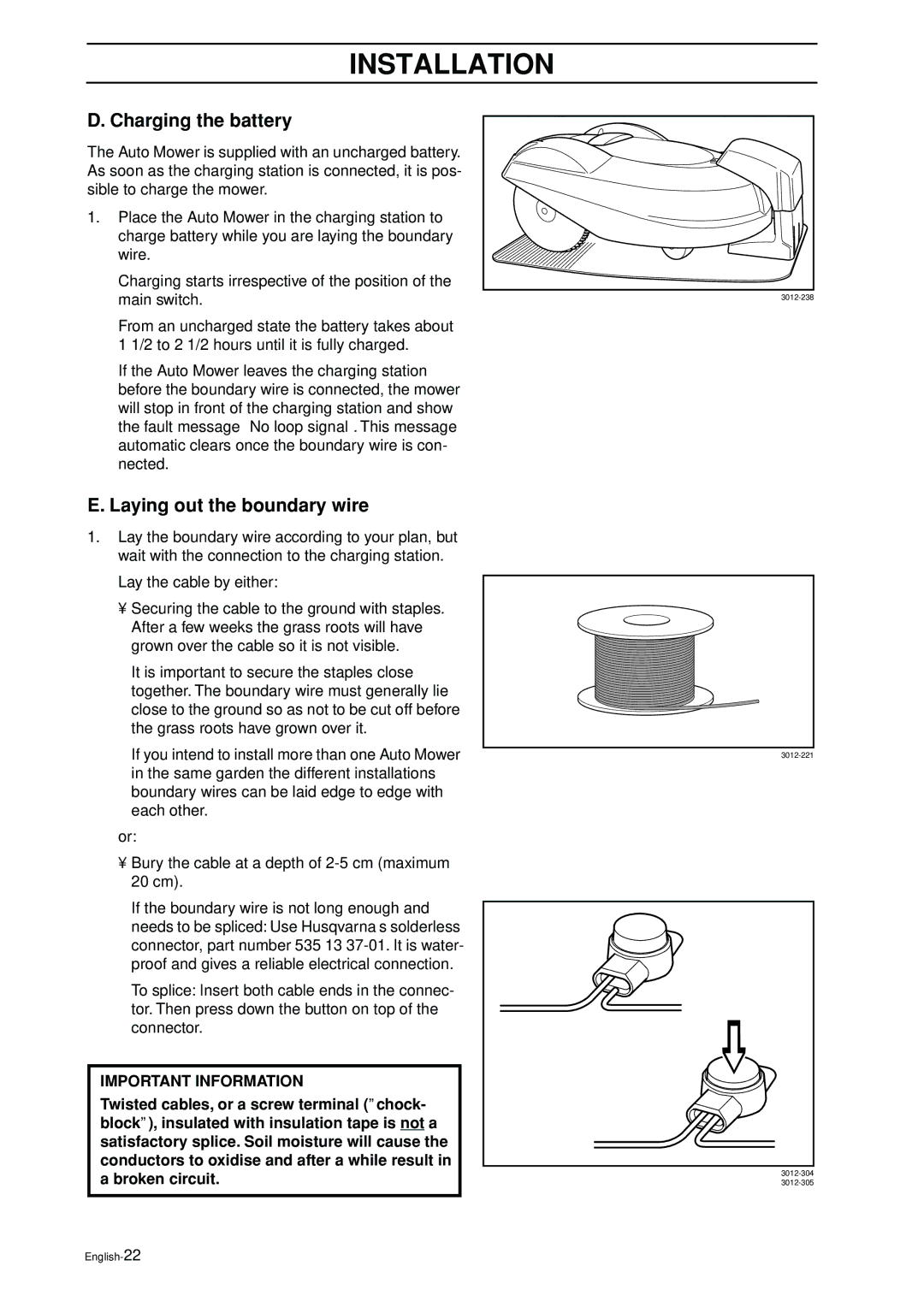
INSTALLATION
D. Charging the battery
The Auto Mower is supplied with an uncharged battery. As soon as the charging station is connected, it is pos- sible to charge the mower.
1.Place the Auto Mower in the charging station to charge battery while you are laying the boundary wire.
Charging starts irrespective of the position of the main switch.
From an uncharged state the battery takes about 1 1/2 to 2 1/2 hours until it is fully charged.
If the Auto Mower leaves the charging station before the boundary wire is connected, the mower will stop in front of the charging station and show the fault message ”No loop signal”. This message automatic clears once the boundary wire is con- nected.
E. Laying out the boundary wire
1.Lay the boundary wire according to your plan, but wait with the connection to the charging station.
Lay the cable by either:
•Securing the cable to the ground with staples. After a few weeks the grass roots will have grown over the cable so it is not visible.
It is important to secure the staples close together. The boundary wire must generally lie close to the ground so as not to be cut off before the grass roots have grown over it.
If you intend to install more than one Auto Mower in the same garden the different installations’ boundary wires can be laid edge to edge with each other.
or:
•Bury the cable at a depth of
If the boundary wire is not long enough and needs to be spliced: Use Husqvarna’s solderless connector, part number 535 13
To splice: Insert both cable ends in the connec- tor. Then press down the button on top of the connector.
IMPORTANT INFORMATION
Twisted cables, or a screw terminal (”chock- block”), insulated with insulation tape is not a satisfactory splice. Soil moisture will cause the conductors to oxidise and after a while result in a broken circuit.
